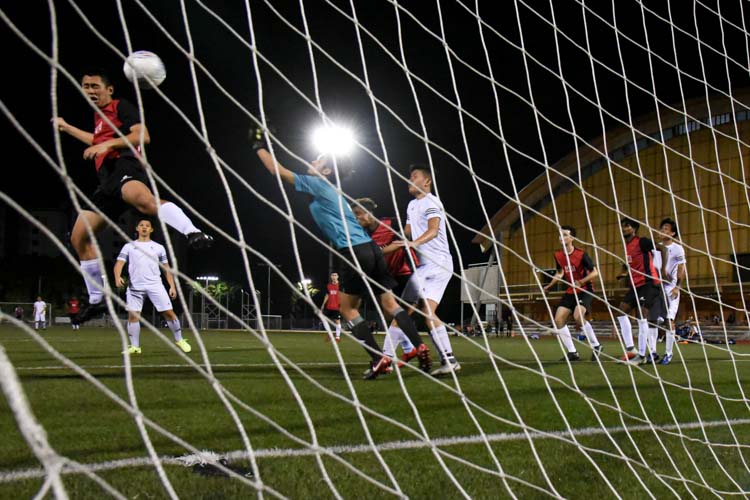By REDintern Ethan Lou
On the 2nd of July 2010, a young Uruguayan striker rose from relative obscurity to almost instant infamy. Luis Suarez, from AFC Ajax, handled the ball in the last minutes of extra time to deny Ghana an advancing goal.
Though Suarez was sent off and the African team were awarded a penalty, Ghana’s Asamoah Gyan missed it. The referee then blew the whistle and at the end of the 1-1 draw, Ghana lost 4-2 in penalties.
Suarez in an illegal move, single-handedly blocked Ghana’s entry into the semi- finals. With the only African team out of the competition, he incensed not only a single nation but an entire continent. To further fan the flames, Suarez displayed a complete lack of remorse for his actions. He openly displayed joy at Gyan’s misfortune and even likened his handball to Diego Maradona’s 1986 “Hand of God” goal, where the Argentinian striker, unseen by the referee, scored a goal with his hand against England. After that game, Maradona said: “The goal was scored a little bit by the hand of God, a little by the head of Maradona.”
Suarez, showing little remorse or humility, said: “The ‘Hand of God’ now belongs to me. Mine is the real ‘Hand Of God’. I made the best save of the tournament. Sometimes in training I play as a goalkeeper so it was worth it.
“There was no alternative but for me to do that and when they missed the penalty I thought ‘It is a miracle and we are alive in the tournament’.”
Suarez walked away from that match the most hated man in Africa. Not only did he send Ghana home, he got off with just a one match ban. Many had called for the ban to be extended. After all, that infraction was not an accidental flouting of the rules. It was a deliberate sabotage of a goal that would have guaranteed Ghana’s advancement. However, much to Ghana’s dismay, FIFA decided not to extend the ban.
With a single foul, Suarez became public enemy number one. Labeled a cheat and vilified beyond vilification, Suarez would most certainly be shot if he walked the streets of South Africa alone. The Africans even cheered for whatever team Uruguay played against. In their eyes, Suarez has damned his entire country.
But while many condemn Suarez for robbing Ghana of a place in the semi-finals, few actually care about why he did it. It was never personal and Suarez has no animosity towards Ghana. Suarez simply wanted his country to win. Testosterone charged and adrenaline fueled, sports are, by nature, aggressive. Winning may not be everything, but at one of the world’s most important sports events, winning is almost everything.
Suarez was there as a representative of his country. The weight of three million Uruguayans were on his shoulders and the fate of an entire country in those two hands of his. True, it reeked of unsporting behavior and it was low. But in that decisive moment, what would you have done?
He may be hated by the Ghanians, but was not there to improve bilateral ties. He was there to win. By sacrificing himself, he had brought victory closer to his country. And that victory, though hollow, was victory nonetheless.
Furthermore, Suarez was given his due punishment. And Ghana’s bitter fury was only because Gyan missed the penalty awarded. Had Ghana scored with that penalty, would Suarez’s handball even have made the news?
The line of morality is thin and blurry. His actions were not wrong, but nor were they right. Suarez just did what he thought was the best for his country.
His one match ban has expired and he played one last time for Uruguay against Germany on the 11th of July. In that battle for third place, although booed for every single touch of the ball, Suarez shrugged it off and played with remarkable fortitude.
Despite losing 3-2 to Germany, Suarez had proven himself integral to Uruguay’s advancement. At the conclusion of the World Cup, there is no doubt that offers to buy him would start pouring into Ajax. Whether a hero or a villain, one cannot deny that Luis Suarez is a decent footballer.











Leave A Comment